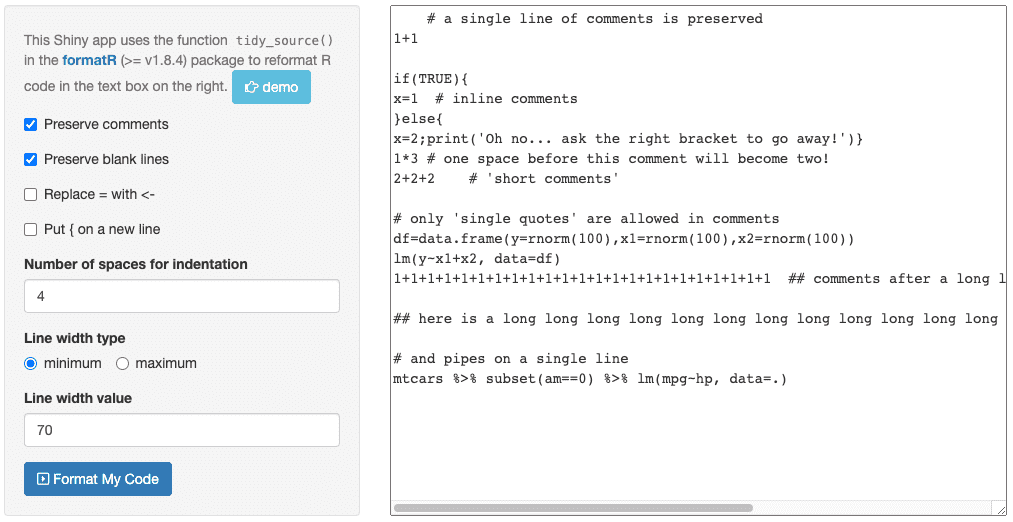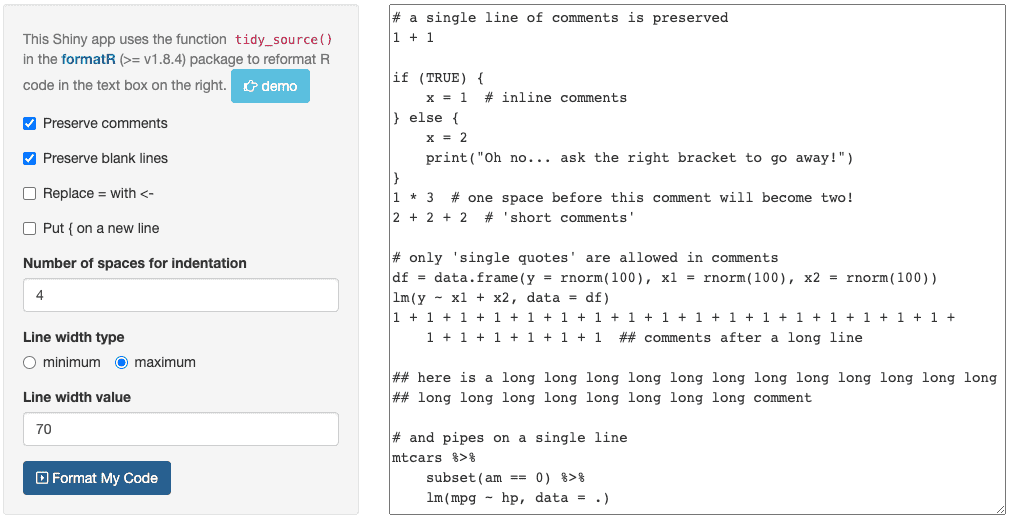1
2
3
4
5
6
7
8
9
10
11
12
13
14
15
16
17
18
19
20
21
22
23
24
25
26
27
28
29
30
31
32
33
34
35
36
37
38
39
40
41
42
43
44
45
46
47
48
49
50
51
52
53
54
55
56
57
58
59
60
61
62
63
64
65
66
67
68
69
70
71
72
73
74
75
76
77
78
79
80
81
82
83
84
85
86
87
88
89
90
91
92
93
94
95
96
97
98
99
100
101
102
103
104
105
106
107
108
109
110
111
112
113
114
115
116
117
118
119
120
121
122
123
124
125
126
127
128
129
130
131
132
133
134
135
136
137
138
139
140
141
142
143
144
145
146
147
148
149
150
151
152
153
154
155
156
157
158
159
160
161
162
163
164
165
166
167
168
169
170
171
172
173
174
175
176
177
178
179
180
181
182
183
184
185
186
187
188
189
190
191
192
193
194
195
196
197
198
199
200
201
202
203
204
205
206
207
208
209
210
211
212
213
214
215
216
217
218
219
220
221
222
223
224
225
226
227
228
229
230
231
232
233
234
235
236
237
238
239
240
241
242
243
244
245
246
247
248
249
250
251
252
253
254
255
256
257
258
259
260
261
262
263
264
265
266
267
268
269
270
271
272
273
274
275
276
277
278
279
280
281
282
283
284
285
286
287
288
289
290
291
292
293
294
295
296
297
298
299
300
301
302
303
304
305
306
307
308
309
310
311
312
313
314
315
316
317
318
319
320
321
322
323
324
325
326
327
328
329
330
331
332
333
334
335
336
337
338
339
340
341
342
343
344
345
346
347
348
349
350
351
352
353
354
355
356
357
358
359
360
361
362
363
364
365
|
---
title: formatR
subtitle: Format R code automatically
author: Yihui Xie
date: "`r Sys.Date()`"
show_toc: true
slug: formatr
githubEditURL: https://github.com/yihui/formatR/edit/master/vignettes/formatR.Rmd
output:
knitr:::html_vignette:
toc: yes
vignette: >
%\VignetteEngine{knitr::rmarkdown}
%\VignetteIndexEntry{An Introduction to formatR}
---
```{js, echo=FALSE}
// redirect from CRAN to my personal website
if (location.protocol === 'https:' && location.href.match('yihui.org') === null)
location.href = 'https://yihui.org/formatr/';
```
```{r setup, include=FALSE}
options(formatR.indent = 4, width = 70)
knitr::opts_chunk$set(tidy = TRUE)
```
# 1. Installation
You can install **formatR** from
[CRAN](https://cran.r-project.org/package=formatR), or yihui.r-universe.dev if
you want to test the latest development version:
```{r eval=FALSE}
install.packages('formatR', repos = 'http://cran.rstudio.com')
# or development version
options(repos = c(
yihui = 'https://yihui.r-universe.dev',
CRAN = 'https://cloud.r-project.org'
))
install.packages('formatR')
```
Or check out the [Github repository](https://github.com/yihui/formatR) and
install from source if you know what this means. This page is always based on
the development version.
```{r}
library(formatR)
sessionInfo()
```
# 2. Reformat R code
The **formatR** package was designed to reformat R code to improve readability;
the main workhorse is the function `tidy_source()`. Features include:
- Long lines of code and comments are reorganized into appropriately shorter
ones;
- Spaces and indentation are added where necessary;
- Comments are preserved in most cases;
- The number of spaces to indent the code (i.e., tab width) can be specified
(default is 4);
- An `else` statement on a separate line without the leading `}` will be moved
one line back;
- `=` as an assignment operator can be substituted with `<-`;
- `%>%` can be substituted with `|>`;
- The left brace `{` can be moved to a new line;
- Arguments of a function call can start on a new line after the function name
when they cannot fit on one line;
- Lines can be wrapped after pipes (both magrittr pipes such as `%>%` and R's
native pipe `|>` are supported).
Below is an example of what `tidy_source()` can do. The source code is:
```{r example, eval=FALSE, tidy=FALSE}
## comments are retained;
# a comment block will be reflowed if it contains long comments;
#' roxygen comments will not be wrapped in any case
1+1
if(TRUE){
x=1 # inline comments
}else{
x=2;print('Oh no... ask the right bracket to go away!')}
1*3 # one space before this comment will become two!
2+2+2 # only 'single quotes' are allowed in comments
lm(y~x1+x2, data=data.frame(y=rnorm(100),x1=rnorm(100),x2=rnorm(100))) ### a linear model
1+1+1+1+1+1+1+1+1+1+1+1+1+1+1+1+1+1+1+1+1 # comment after a long line
## here is a long long long long long long long long long long long long long comment that may be wrapped
```
We can copy the above code to clipboard, and type
`tidy_source(width.cutoff = 50)` to get:
```{r example, eval=FALSE, tidy.opts=list(width.cutoff=50)}
```
Two applications of `tidy_source()`:
- `tidy_dir()` can reformat all R scripts under a directory
- `usage()` can reformat the usage of a function, e.g. compare `usage()` with
the default output of `args()`:
```{r collapse=TRUE}
library(formatR)
usage(glm, width = 40) # can set arbitrary width here
args(glm)
```
# 3. The Graphical User Interface
If the **shiny** packages has been installed, the function `tidy_app()` can
launch a Shiny app to reformat R code like this (live demo at
`https://yihui.shinyapps.io/formatR/`):
``` r
formatR::tidy_app()
```
```{r echo=FALSE, results='asis'}
if (ignore_img <- !is.na(Sys.getenv('_R_CHECK_PACKAGE_NAME_', NA))) cat('<!--')
```
[](https://yihui.shinyapps.io/formatR/)
After hitting the `Format` button:
[](https://yihui.shinyapps.io/formatR/)
```{r echo=FALSE, results='asis'}
if (ignore_img) cat('\n-->')
```
# 4. Evaluate the code and mask output in comments
It is often a pain when trying to copy R code from other people's code which has
been run in R and the prompt characters (usually `>`) are attached in the
beginning of code, because we have to remove all the prompts `>` and `+`
manually before we are able to run the code. However, it will be convenient for
the reader to understand the code if the output of the code can be attached.
This motivates the function `tidy_eval()`, which uses `tidy_source()` to
reformat the source code, evaluates the code in chunks, and attaches the output
of each chunk as comments which will not actually break the original source
code. Here is an example:
```{r comment=NA}
set.seed(123)
tidy_eval(text = c("a<-1+1;a # print the value", "matrix(rnorm(10),5)"))
```
The default source of the code is from clipboard like `tidy_source()`, so we can
copy our code to clipboard, and simply run this in R:
```{r eval=FALSE}
library(formatR)
tidy_eval()
# without specifying any arguments, it reads code from clipboard
```
# 5. Showcase
We continue the example code in Section 2, using different arguments in
`tidy_source()` such as `arrow`, `blank`, `indent`, `brace.newline` and
`comment`, etc.
## Substitute `=` with `<-`
```{r example, eval=FALSE, echo=5, tidy.opts=list(arrow=TRUE)}
```
## Discard blank lines
Note the 5th line (an empty line) was discarded:
```{r example, eval=FALSE, echo=1:5, tidy.opts=list(blank = FALSE)}
```
## Reindent code (2 spaces instead of 4)
```{r example, eval=FALSE, echo=5, tidy.opts=list(indent = 2)}
```
## Start function arguments on a new line
With `args.newline = TRUE`, the example code below
```{r, args-code, eval=FALSE}
shiny::updateSelectizeInput(session, "foo", label = "New Label",
selected = c("A", "B"), choices = LETTERS,
server = TRUE)
```
will be reformatted to:
```{r, args-code, eval=FALSE, tidy.opts=list(args.newline=TRUE)}
```
## The pipe operators `%>%` and `|>`
Since **formatR** 1.9, code lines contains operators `|>`, `%>%`, `%T%`, `%$%`,
and/or `%<>%` will be automatically wrapped after these operators. For example,
```{r, pipe-code, eval=FALSE, tidy=FALSE}
mtcars %>% subset(am == 0) %>% lm(mpg~hp, data=.)
```
will be reformatted to:
```{r, pipe-code, eval=FALSE, tidy=TRUE}
```
## Move left braces `{` to new lines
```{r example, eval=FALSE, echo=5, tidy.opts=list(brace.newline = TRUE)}
```
## Do not wrap comments
```{r example, eval=FALSE, echo=11:12, tidy.opts=list(wrap = FALSE)}
```
## Discard comments
```{r example, eval=FALSE, tidy.opts=list(comment = FALSE, width.cutoff = 50)}
```
# 6. Further notes
The tricks used in this packages are very dirty. There might be dangers in using
the functions in **formatR**. Please read the next section carefully to know
exactly how comments are preserved. The best strategy to avoid failure is to put
comments in complete lines or after *complete* R expressions. Below are some
known cases in which `tidy_source()` fails.
## Inline comments after an incomplete expression or ;
``` r
1 + 2 + ## comments after an incomplete line
3 + 4
x <- ## this is not a complete expression
5
x <- 1; # you should not use ; here!
```
Code with comments after incomplete R expression cannot be reformatted by
**formatR**. By the way, `tidy_source()` will move comments after `{` to the
next line, e.g.,
```{r comment-brace, tidy=FALSE, eval=FALSE}
if (TRUE) {## comments
}
```
will become
```{r comment-brace, eval=FALSE}
```
## Inappropriate blank lines
Blank lines are often used to separate complete chunks of R code, and arbitrary
blank lines may cause failures in `tidy_source()` as well when the argument
`blank = TRUE`, e.g.
``` r
if (TRUE)
{'this is a BAD style of R programming!'} else 'failure!'
```
There should not be a blank line after the `if` statement. Of course
`blank = FALSE` will not fail in this case.
## `?` with comments
We can use the question mark (`?`) to view the help page, but **formatR**
package is unable to correctly format the code using `?` with comments, e.g.
``` r
?sd # help on sd()
```
In this case, it is recommended to use the function `help()` instead of the
short-hand version `?`.
# 7. How does `tidy_source()` actually work?
In a nutshell, `tidy_source(text = code)` is basically
`deparse(parse(text = code))`, but actually it is more complicated only because
of one thing: `deparse()` drops comments, e.g.,
```{r}
deparse(parse(text = '1+2-3*4/5 # a comment'))
```
The method to preserve comments is to protect them as strings in R expressions.
For example, there is a single line of comments in the source code:
``` r
# asdf
```
It will be first masked as
``` r
invisible(".IDENTIFIER1 # asdf.IDENTIFIER2")
```
which is a legal R expression, so `base::parse()` can deal with it and will no
longer remove the disguised comments. In the end the identifiers will be removed
to restore the original comments, i.e. the strings `invisible(".IDENTIFIER1` and
`.IDENTIFIER2")` are substituted with empty strings.
Inline comments are handled differently: two spaces will be added before the
hash symbol `#`, e.g.
``` r
1+1# comments
```
will become
``` r
1+1 # comments
```
Inline comments are first disguised as a weird operation with its preceding R
code, which is essentially meaningless but syntactically correct! For example,
``` r
1+1 %\b% "# comments"
```
then `base::parse()` will deal with this expression; again, the disguised
comments will not be removed. In the end, inline comments will be freed as well
(remove the operator `%\b%` and surrounding double quotes).
All these special treatments to comments are due to the fact that
`base::parse()` and `base::deparse()` can tidy the R code at the price of
dropping all the comments.
# 8. Global options
There are global options which can override some arguments in `tidy_source()`:
| argument | global option | default |
|-----------------|------------------------------------|--------------------|
| `comment` | `options('formatR.comment')` | `TRUE` |
| `blank` | `options('formatR.blank')` | `TRUE` |
| `arrow` | `options('formatR.arrow')` | `FALSE` |
| `pipe` | `options('formatR.pipe')` | `FALSE` |
| `indent` | `options('formatR.indent')` | `4` |
| `wrap` | `options('formatR.wrap')` | `TRUE` |
| `width.cutoff` | `options('formatR.width')` | `options('width')` |
| `brace.newline` | `options('formatR.brace.newline')` | `FALSE` |
| `args.newline` | `options('formatR.args.newline')` | `FALSE` |
Also note that single lines of long comments will be wrapped into shorter ones
automatically when `wrap = TRUE`, but roxygen comments will not be wrapped
(i.e., comments that begin with `#'`).
|